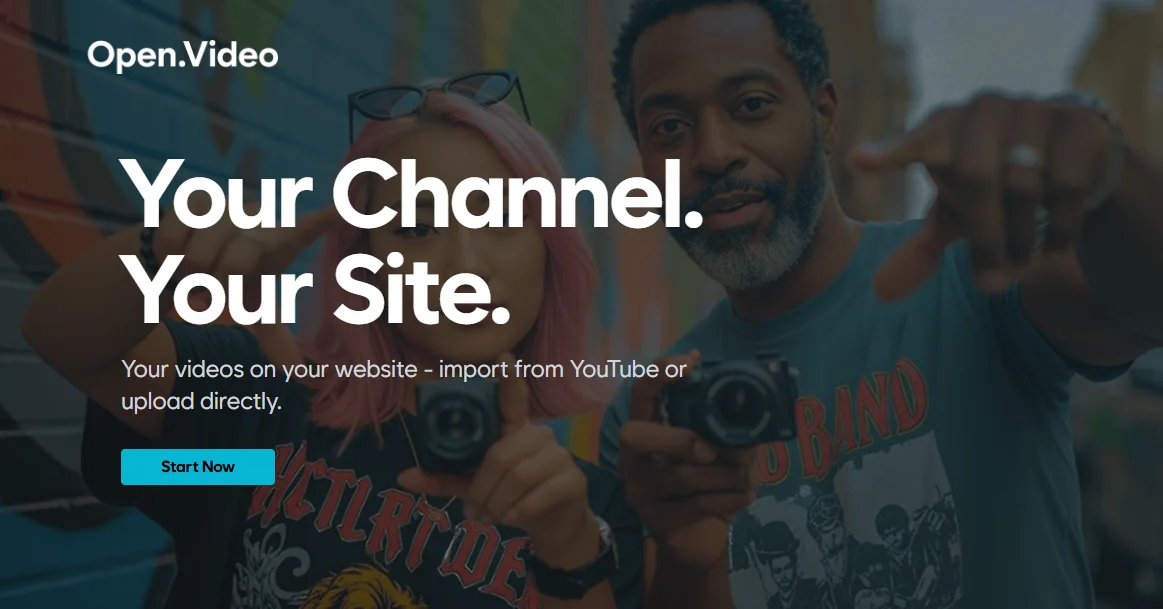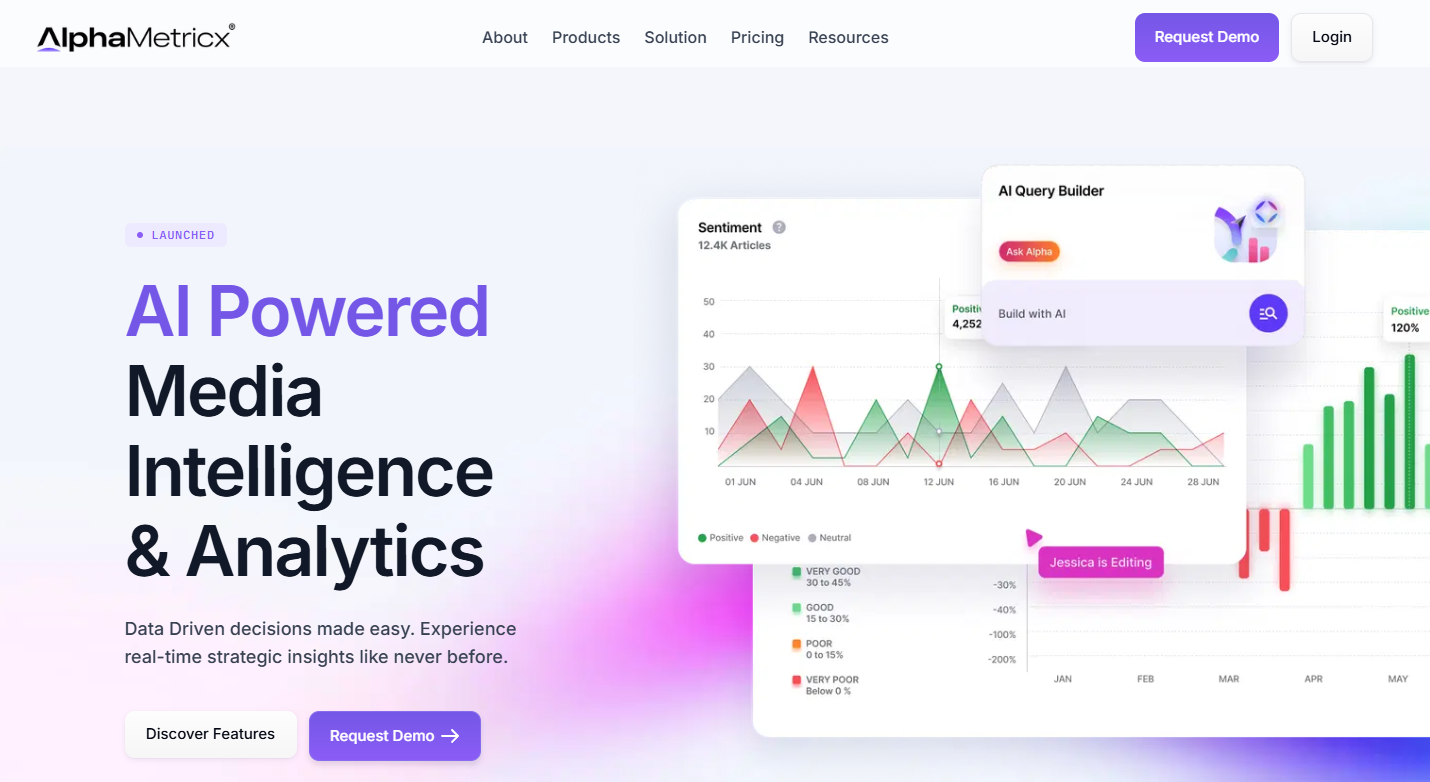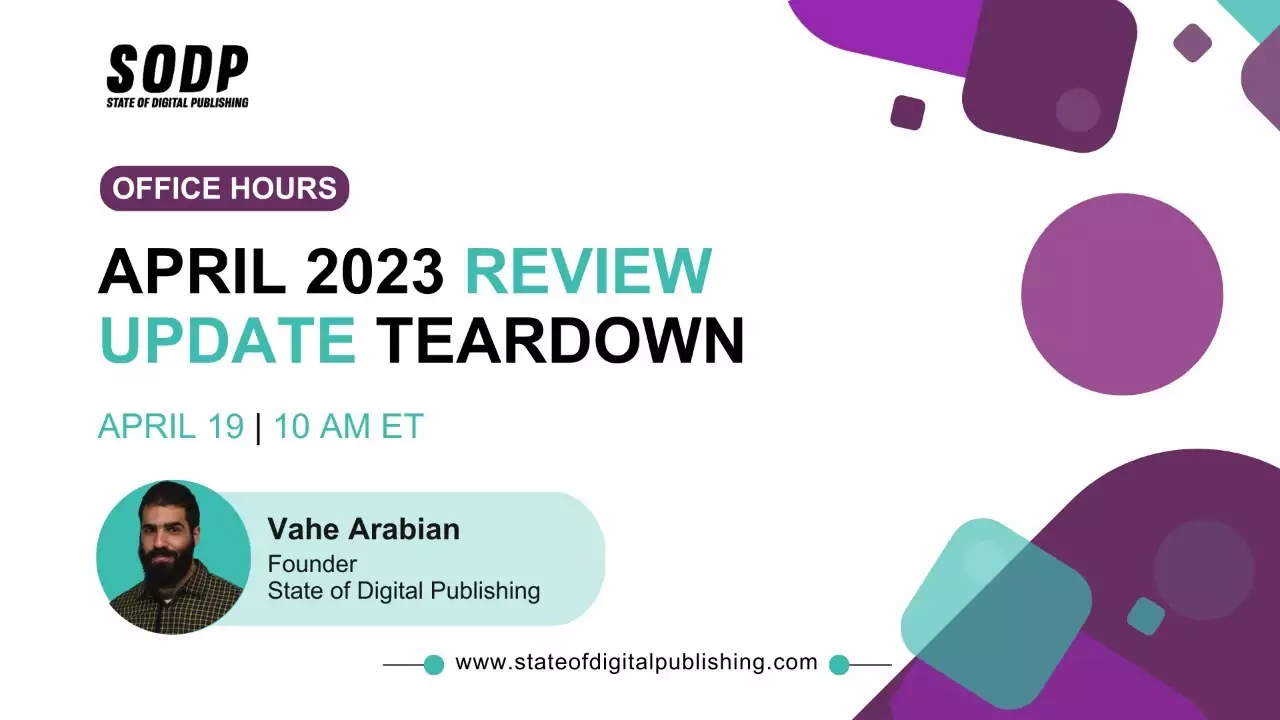What’s been happening in the world of digital publishing over the last week? Here’s your weekly round-up of news, announcements, product launches, and more.
Business growth
Sports media company WSC Sports raises $100 million
WSC Sports, a B2B sports video company, has raised $100 million in a series D funding round, led by ION Crossover Partners, to expand into new verticals and countries.
The new funding will go toward recruiting more than 150 new employees this year and building out products that are adjacent to the sports video work it currently manages, says WSC Sports CEO and co-founder Daniel Shichman. Read more
Why it matters: As Kerry Flynn and Sara Fischer point out, “The Israel-based company’s growth reflects the changes rapidly disrupting the sports media industry.
WSC Sports licenses artificial intelligence software to media companies and sports leagues that cuts video clips of live sports events and distributes them in real-time.”
Financial Times nears 1 million digital-only subscribers
The Financial Times will soon reach 1 million digital-only subscribers, a source familiar with the numbers confirms to Axios.
In total, the company has 1.17 million paid subscribers and will reach 1 million digital-only subscribers later this month, according to internal estimates. It’s unclear how many of those subscribers are on promotional plans. Read more
Why it matters: As the article notes, “The FT has had a digital paywall since 2002. It was one of the first publishers to introduce a metered paywall in 2007, before transitioning over to paid subscription trials in 2015. The company has seen subscriptions surge in recent months amid efforts to expand globally outside of the U.K. and experiments with subscriber-only products.”
Magazine Giant Condé Nast Posts First Profit in Years
Condé Nast said it turned a profit last year for the first time in years, a feat the publisher of Vogue, Bon Appétit and the New Yorker attributes to strong digital-revenue growth and cost savings from reorganizing its global operations.
The company recorded nearly $2 billion in revenue last year, a double-digit-percentage increase from 2020, according to a person familiar with the matter. Condé Nast, a unit of closely held Advance Publications Inc., doesn’t make its financial results public. It declined to disclose the size of its 2021 profit or say for how long it had been unprofitable. Read more
Why it matters: This is the result of a 3-year overhaul of the business model: “Condé Nast Chief Executive Roger Lynch has led efforts to streamline the business, which until recently was a sprawling collection of international publications that essentially operated independently from one another. When he took charge in 2019, after running Pandora Media Inc. and Dish Network Corp.’s Sling TV, Mr. Lynch worked to merge the company’s U.S. and international businesses. The moves included naming Anna Wintour its first-ever global chief content officer, giving her oversight of all world-wide brands owned or operated by Condé Nast except the New Yorker.
The overhaul made it possible for brands such as GQ and Condé Nast Traveler to create distinctive content locally while also running stories that can resonate beyond their regional market in other editions, Mr. Lynch said in an interview.”
Trends
Nearly a quarter of Americans get news from podcasts
About a quarter of U.S. adults (23%) say they get news at least sometimes from podcasts, according to a Pew Research Center survey conducted in July 2021.
The share of Americans who say they often get news from a podcast is quite small – at just 7% – compared with about twice as many adults (16%) who say they sometimes get news from podcasts. At the same time, more than half of Americans (56%) say they never get news from podcasts, suggesting there is still quite a lot of growth potential for this nascent industry. These numbers are relatively stable compared with those reported in 2020. Read more
SEO
Not New: 15% Of Search Queries On Google Are Still New
Here is a not new piece of data, 15% of the searches Google sees each day are new. Google shared this stat, again, on Twitter the other day saying “Fun fact: 15% of all Google searches have never been searched before.”
Just some history on this stat, in 2007, 25% of all queries that searchers entered into the Google search box was never seen by Google before. That figure changed to 15% in 2013 and has remained at that figure according to Google even through today. Last I covered it was about two years ago in 2020, Google reconfirmed the 15% figure in 2017 and 2018 and now again in 2022. Read more
Google: No SEO Bonus For Keyword-Based Domains
Google’s John Mueller answered a question on Reddit about ranking benefits of using the keywords in the domain name. Mueller confirmed that there’s no SEO bonus for keywords in the domain and listed reasons why not to use keyword-based domains.
Mueller lists valid reasons why keywords in domains don’t provide a ranking bonus and why choosing those kinds of domains can backfire. However there are still (non-SEO) related reasons why keywords in domains may still be a valid choice. Read more
Why it matters: “John Mueller advised to pick a domain name that can survive a change in the business model and trends.”
Social media
Instagram’s video ad-revenue sharing program has underwhelmed participating publishers
Last year Instagram finally opened up a video ad-revenue sharing program for publishers. However, the financial floodgates are far from open, according to participating publishers.
“Underwhelmed” is how one publisher described their view of the money they are making from uploading long-form videos — formally labeled IGTV — to Instagram. Other publishers used stronger language. Read more
Why it matters: As the article points out, “If Instagram is rallying around Reels, where does that leave its video ad-revenue sharing program? Unclear. The platform doesn’t have a video ad-revenue sharing program for Reels. Instead, like TikTok and YouTube for its TikTok clone, Instagram has a creator fund that rewards creators with money for uploading Reels.”
Snapchat will put ads within stories and share the money with creators
Content from our partners
Snapchat is introducing a new way for creators on the app to earn money. The platform is testing mid-roll ads that appear in the Stories of a small group of US creators, with a wider rollout happening in the coming months.
When an ad is placed within a Snap Star’s Story, Snapchat will share the revenue with the creators. The company says the revenue share is based on a formula that takes into account metrics like posting frequency and engagement. The feature is only available to Snap Stars, who are creators or public figures with large followings that have been verified on Snapchat, indicated by a gold star. Read more
Why it matters: As pointed out in the article, “This comes shortly after Snapchat signaled that users were moving toward TikTok-esque content over Stories. Snap CEO Evan Spiegel told investors earlier this month that users are spending less time posting and viewing stories and instead watching content on Spotlight, Snapchat’s TikTok equivalent.”
Meta launches Facebook News in France
After the US, the UK, Germany, and Australia, France is the next country to see the arrival of Facebook News. Meta has started rolling out the new news feed on its flagship product, the Facebook social media website, and should appear in the feed of all users by May.
Facebook News, partnered with more than 100 media outlets in France, is expected to offer “news from a wide range of reliable and relevant news sources,” according to their press release. Read more
Why it matters: As pointed out in the article, “The new tab remains separate from the broader negotiations on neighbouring rights for which the French press has been eligible since the country transposed an EU directive on copyright in the EU single market into French law in July 2019.
According to this law, digital platforms like Facebook and Google are now required to pay press publishers when their journalistic content is being re-used across their services.”












